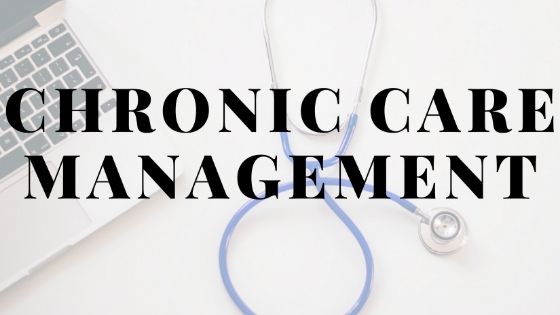Chronic Care Management is a field that is constantly being evolving and redefined. This type of approach takes into account the differences between nursing home care and acute care. It is a multi-faceted approach that considers people, caregivers, equipment, drugs, medical procedures, and a whole lot more.
When you are asked if you need Chronic Care Management, most people probably think back to their recent or long term disability or chronic illness. They assume that because they had one issue, there must be a second, third, or even fourth issue. For some, the issue was not that serious and may not require further medical attention, or they may not think that another issue or ailment may present themselves in the future. But for others, there may be a direct need for Chronic Care Management.
This form of care can be found in the hospital setting, where acute care providers treat acute care issues. The Chronic Care Management staff provides a long term relationship with the person to whom they are assigned. They help them with their physical and mental health, manage their finances, and get them access to medical care if they need it. Although their services are focused on the immediate treatment of the patient, most services are short term but are designed to enable the patient to enjoy as much quality of life as possible for the time they are in their care.
A Caregiver will often receive treatment for a health issue or disease after being diagnosed with that condition. A person with chronic illness may have to deal with substance abuse and other issues that result in caregivers with multiple issues interacting. There may be additional issues associated with other caregivers, and all of these may need to be addressed simultaneously.
Being a chronic care recipient, especially a chronic care recipient with Multiple Disabilities, is not easy. It can be difficult to navigate relationships with family members, doctors, and even friends. Life can seem lonely and isolated when it involves daily challenges to navigate. One might consider their healthcare provider about their best friend, but often not.
In order to keep a person’s chronic health condition or disease in the forefront of his or her consciousness, the person is required to do things like maintaining the doctor’s appointment, take medications, see their doctor on a regular basis, and visit them at their home. Many people simply cannot do this. That is why Chronic Care Management is so important.
There are two basic ways in which Chronic Care Management can be used. The first way is called Annual Confidential Management. This type of care centers on providing service to a patient, either as a single person or in a group. It is a level of care that is designed to make the experience the recipient enjoys while the caretaker has a better understanding of the patient’s strengths and weaknesses.
The second method is a form of Evaluation, with the intent of improving the patient’s comfort and well being. It is a form of care where the practitioner works to identify the needs of the patient and then works to meet those needs. Sometimes, there may be a serious illness present, but other times, this form of care might include addressing specific issues, such as building confidence. Other times, this type of evaluation may include a physical exam, screening for various illnesses and/or injuries, and discussing medical procedures.
Each Chronic Care Management practice has its own vision, mission, and goals for the treatment, care, and/or evaluation that it provides. Because the treatment and care provided by this type of staff vary widely, it is important to look at the programs of each individual practice and judge for yourself if the practices provide what you need.
For many patients, this is the first time they have had to interact with their primary caregivers, other than through letters or emails. This is the first time that they will be living away from home and their family, and having to take on a full-time job, a full-time social life, and a full-time responsibility for their own health and safety.
